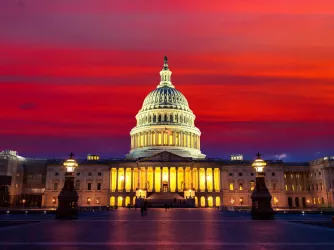Table of Contents
Law Prof's Argument for Punishing 'Hate Speech' Sparks Passionate Defenses of First Amendment

Colleges and universities often get confused about whether the First Amendment precludes them from prohibiting “hate speech”—whatever that phrase means to them, since it has no actual legal definition. So FIRE also takes note of the ongoing debate over whether hate speech should be prohibited, not because we expect the law to change any time soon but because some of the reasoning employed in this debate reflects the rationales used by administrators when they attempt to punish or prohibit constitutionally protected speech. Fordham University School of Law Professor Thane Rosenbaum recently inspired several powerful defenses of the country’s current First Amendment jurisprudence when he asked the question, in a column in The Daily Beast, “Should Neo-Nazis Be Allowed Free Speech?”
Rosenbaum looks to a familiar assertion for support, writing, “There is no freedom to shout ‘fire’ in a crowded theater.” In other words, we already restrict some harmful speech, so prohibiting speech that allegedly harms others emotionally through its hateful message is not really that new. But as The Daily Beast’s Michael Moynihan, Popehat’s Ken White, and criminal defense lawyer Scott Greenfield quickly pointed out in response, this paraphrased quotation of Supreme Court Justice Oliver Wendell Holmes, Jr., is both taken out of context and part of a case that was overturned long ago: Schenck v. United States (1919). In Schenck, the Court upheld a man’s conviction for distributing leaflets opposing the military draft—leaflets that would be protected under today’s First Amendment jurisprudence. And even Justice Holmes himself backpedaled in subsequent cases after realizing the repercussions of such a broad, nebulous statement. In his article, Moynihan reminds readers of how this quote has been abused:
Gabe Rothman, legal counsel for the ACLU, wrote in 2012, “The ‘crowded theater’ example is worse than useless in defining the boundaries of constitutional speech. When used metaphorically, it can be deployed against any unpopular speech.”
Although Rosenbaum argues that juries will be able to appropriately discern speech that causes enough emotional harm to warrant punishment (just as they do with physical harm), Kindly Inquisitors author Jonathan Rauch pointed to FIRE’s work to demonstrate that juries would actually be likely to draw inconsistent lines based on their own biases. And university administrators often punish core political speech or even innocuous jokes despite the fact that they can be held accountable for their actions through lawsuits or other means of redress. Juries, on the other hand, would be subject to no such repercussions for simply punishing speech with which they disagree.
Moynihan also provides a contemporary example of how restrictions on “hate speech” have been counterproductive in their effect:
[O]ne would assume that racial discrimination has been dumped on the ash heap of history in France, considering racist thoughts and symbols have been made illegal. How, then, does one explain that the National Front, whose former leader Jean-Marie Le Pen was found guilty of Holocaust denial, is now the most popular party in the country?
Moynihan, White, Greenfield, and Rauch all provide additional compelling counterpoints to Rosenbaum in their respective articles, and don’t forget to check out Rosenbaum’s article itself.
Recent Articles
FIRE’s award-winning Newsdesk covers the free speech news you need to stay informed.

O holy fight: New Hampshire Satanic Temple statue threatened by more than vandals

One day after FIRE lawsuit, Congress passes changes to filming permits in national parks

VICTORY: FIRE lawsuit leads California to halt law penalizing reporters, advocates, and victims who discuss publicly known information about sealed arrest records
